What it's like for kids to live in small-town Wisconsin
Five teenagers who attend Black River Falls High School – who grew up in the area or moved there after living elsewhere – share how their perspectives and future plans are shaped by living in a rural community.
By Zac Schultz | Here & Now
June 2, 2022 • West Central Region
When Haylie Schmidt was growing up, softball was everything.
Winter in Black River Falls is long, so her Nana’s basement doubled as a practice field, just as her Nana doubled as a coach.
“She showed me what it’s like to be dedicated to something,” said Haylie. “And I found that passion because of her.”
Haylie’s connection to Nana is more than just sports.
“When I was really young, I lived with my Nana and my Papa because my mom and dad both were alcoholics and drug addicts, so I could not live there,” she said.
When her mom stopped using substances, Haylie lived with her in Eau Claire, and found the schools there overwhelming.
“You pass people in the halls, and you’re like, ‘I don’t even know who you are,'” she said.
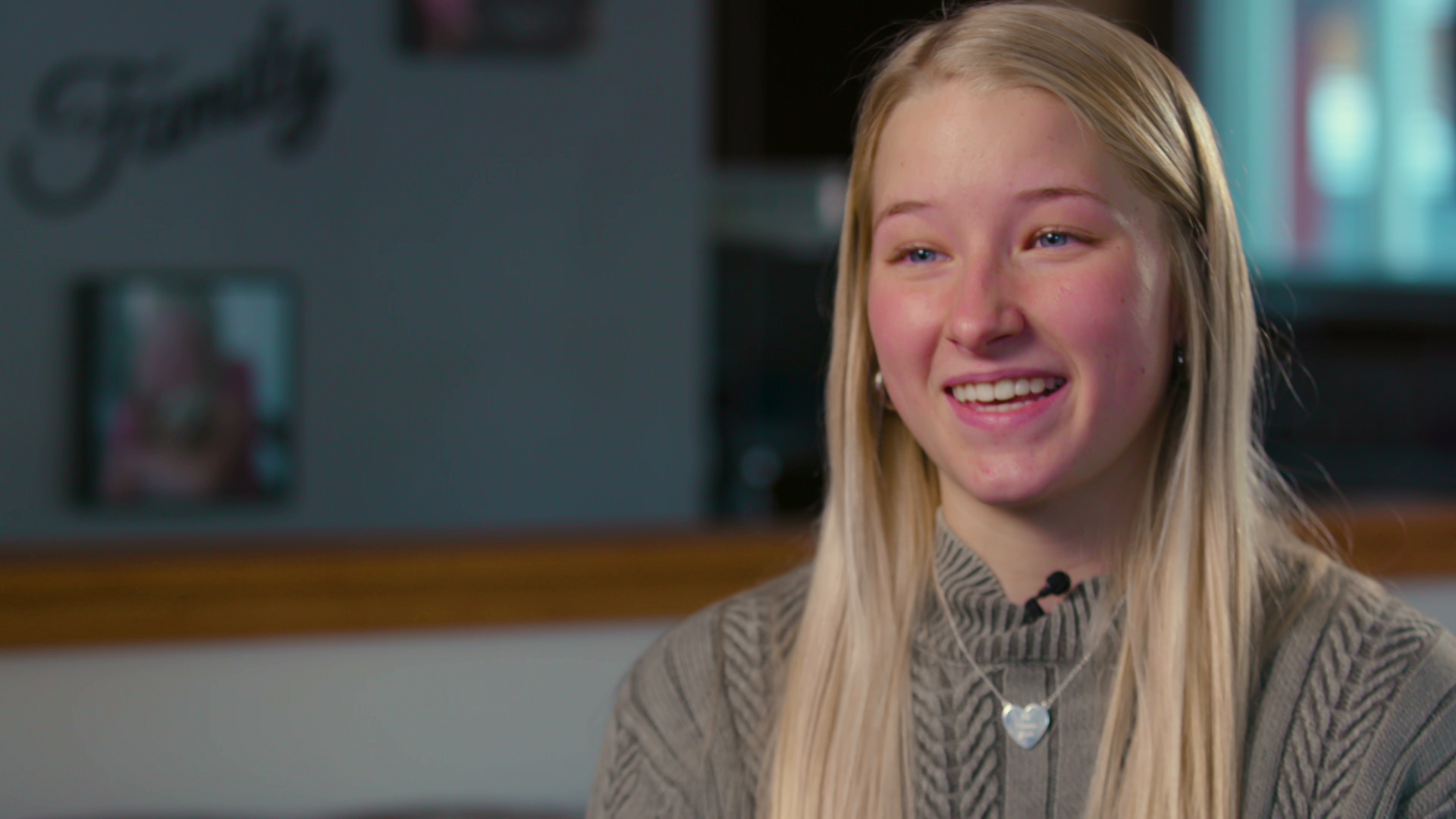
Haylie Schmidt (Credit: PBS Wisconsin)
Around the time Haylie’s mom starting using drugs again, her dad was in recovery.
“After that, I moved back down here with my dad,” she said.
“He’s seven years sober now, eight this year,” Haylie added.
“Good morning Tigers! It’s Thursday February 3 and we have a senate meeting this morning,” Haylie shared in morning announcements at Black River Falls High School.
There are only 500 kids in the whole high school.
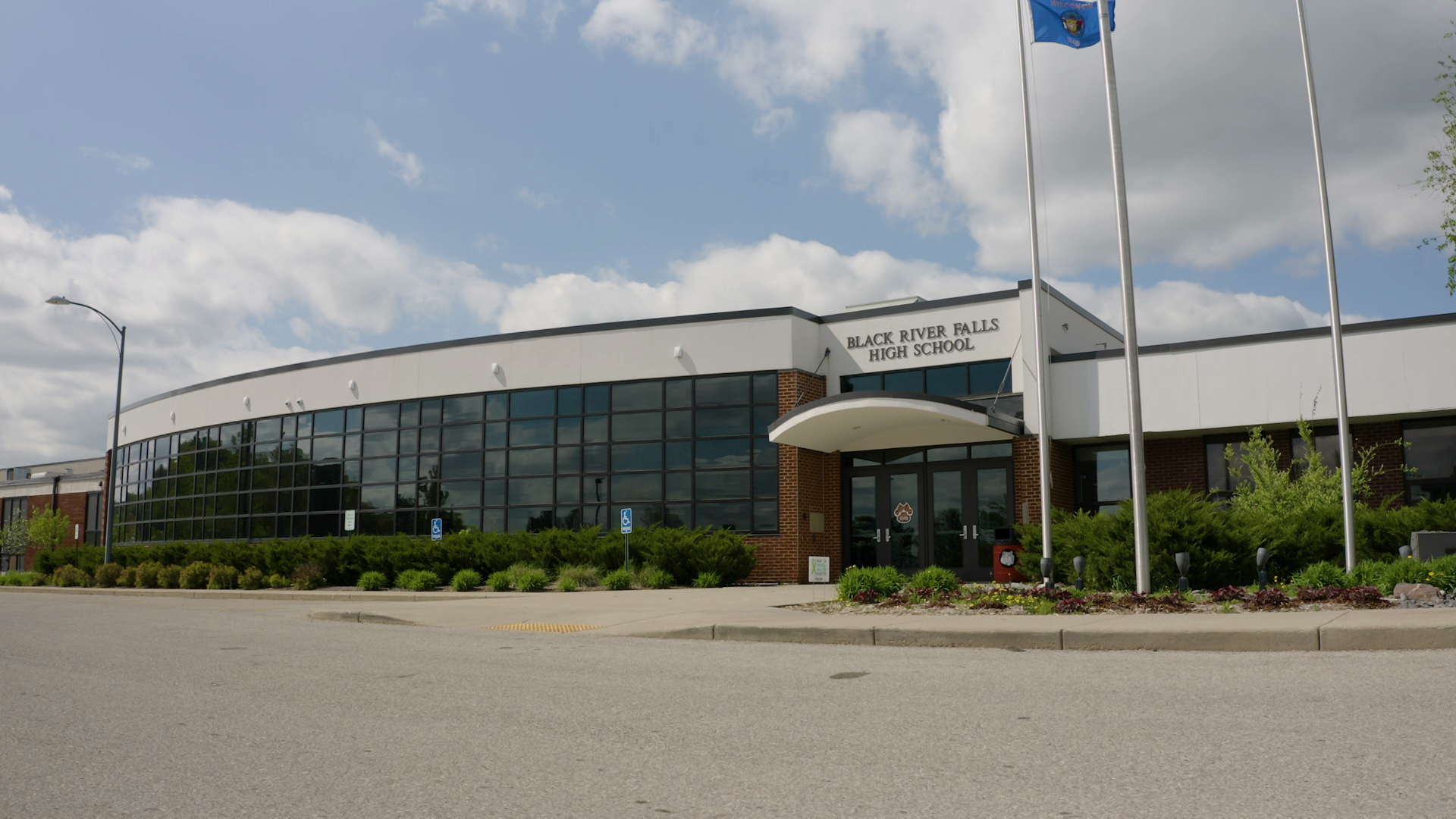
About 500 students attend Black River Falls High School, in a rural Wisconsin community located about halfway between Madison and the Twin Cities. (Credit: PBS Wisconsin)
“Now that I’m in high school here, I would never wish to go anywhere bigger because I pass everyone in the halls – I know everyone,” Haylie shared.
The city of Black River Falls has about 3,500 people, and Haylie said the familiarity is comforting.
“This town is so small that it’s almost like a big neighborhood, if that makes sense,” she said.
Paige Blackdeer moved to Black River Falls seven years ago from Arizona.
I have not lived this far north before, and I don’t think I’ve been this cold before,” Paige said.
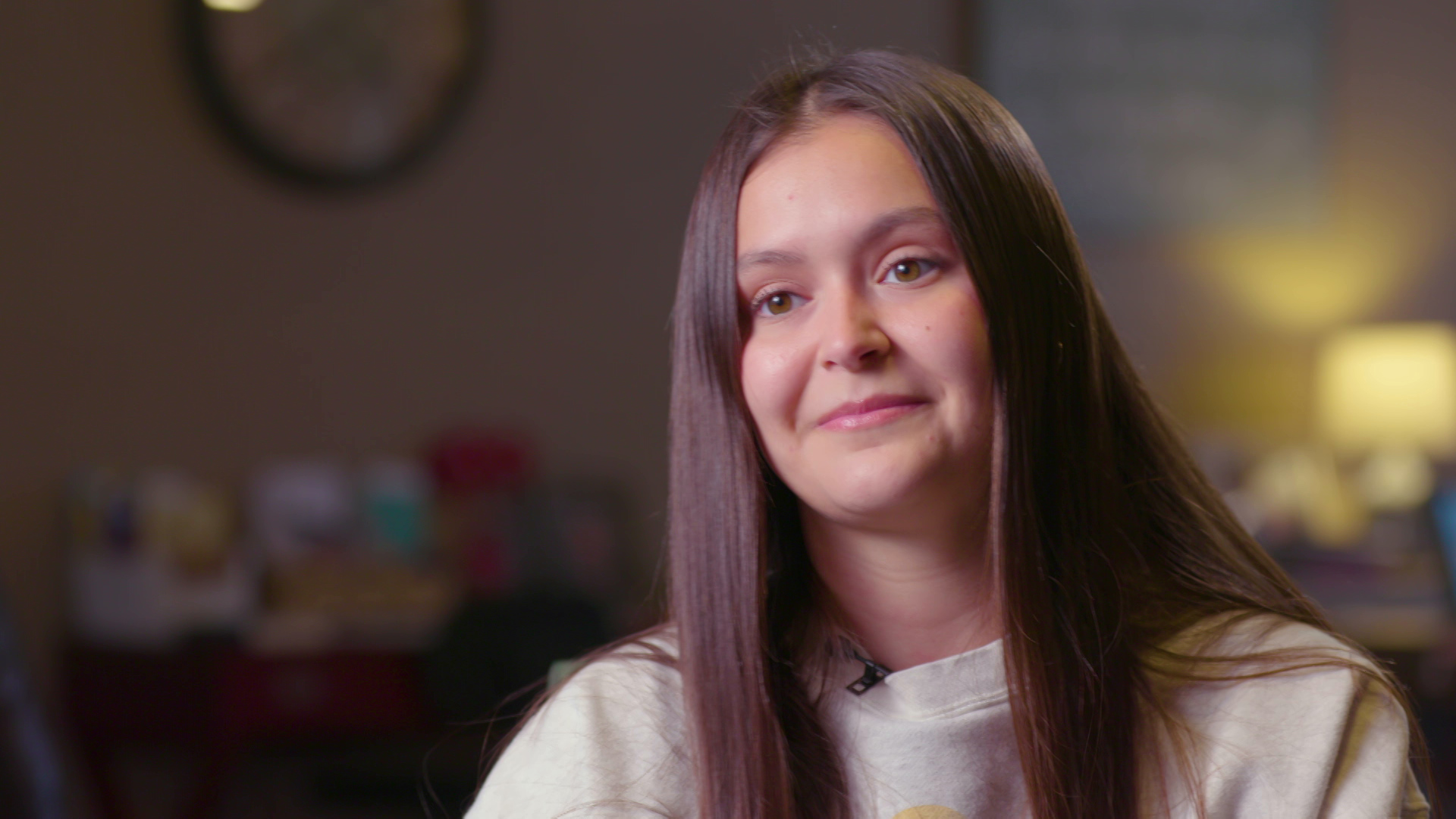
Paige Blackdeer (Credit: PBS Wisconsin)
Paige said making friends at school was easy, but after living in a big city, there was no adjusting to small town life.
“I still don’t think I ever really got used to that because I never fully committed to living in this town, because even though I technically live here, we go to Onalaska or like anywhere, multiple times a week,” she explained.
Paige was surprised at how many students have never traveled – and how closed-minded people could be.
“Even if you’re not given the opportunity to go somewhere, no one’s stopping you from learning,” she said. “Like, we have the internet with books – nothing stopping you except for your own mindset and beliefs.”
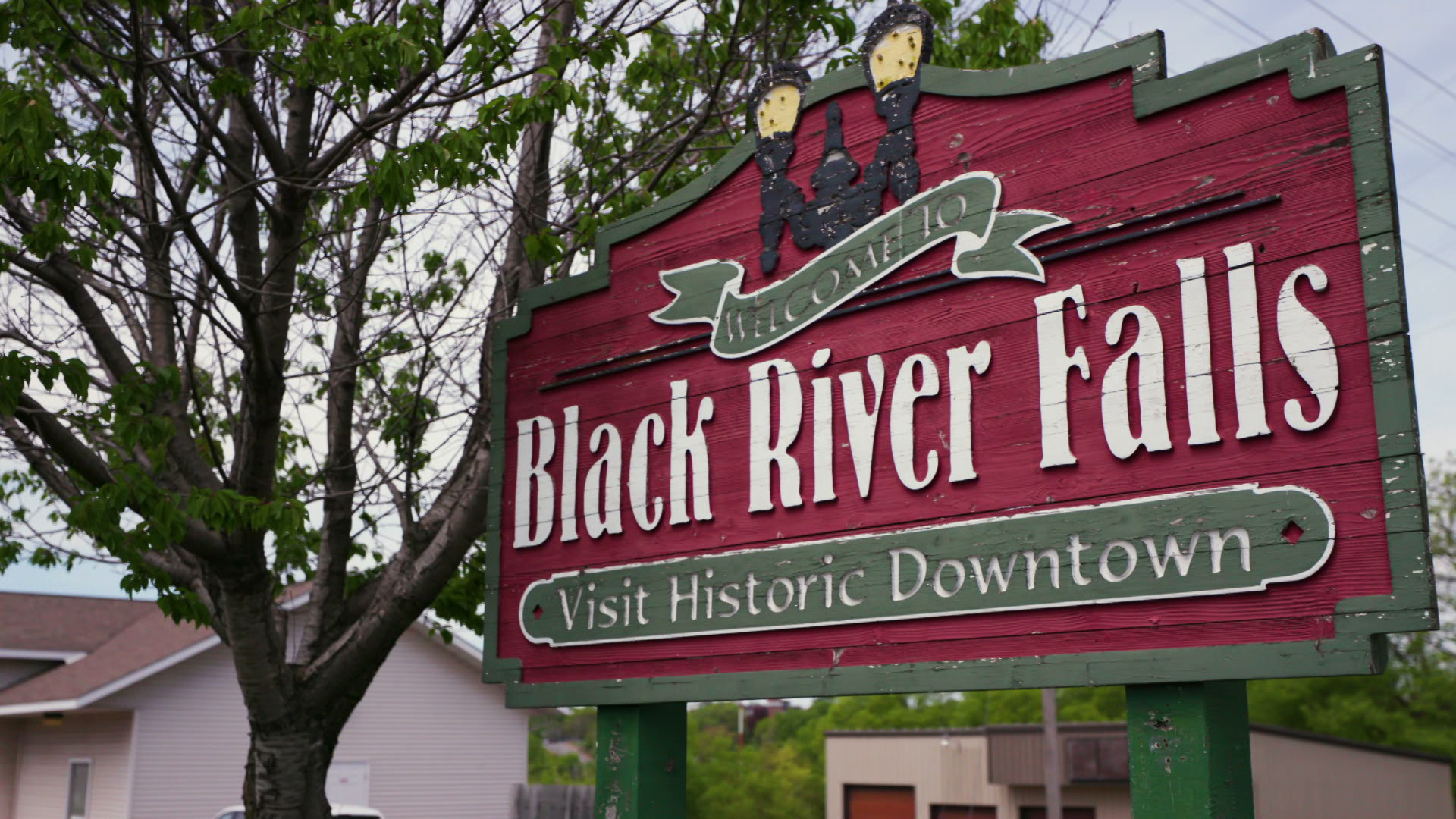
About 3,500 people live in the city of Black River Falls, which is the seat and largest municipality in Jackson County in western Wisconsin. (Credit: PBS Wisconsin)
One of the reasons Paige’s family moved to Black River Falls is her Dad is Ho-Chunk and got a job with the Nation.
But she said there’s a disconnect with that part of her heritage.
“I fit in with who I want to fit in with,” she said. “I’m not fully white, but I’m not fully Ho-Chunk either. I don’t fully partake in everything that a typical white person would. But I also don’t partake in every traditional Ho-Chunk thing.”
Paige has managed to fit in, even if the fit is only temporary.
“I’ve definitely warmed up to it. So I do like it here. But aside from that, I’m ready to go,” she said.
There’s no disconnect with Jacob Ward.
“I don’t like the town – I don’t like the towns,” he said.
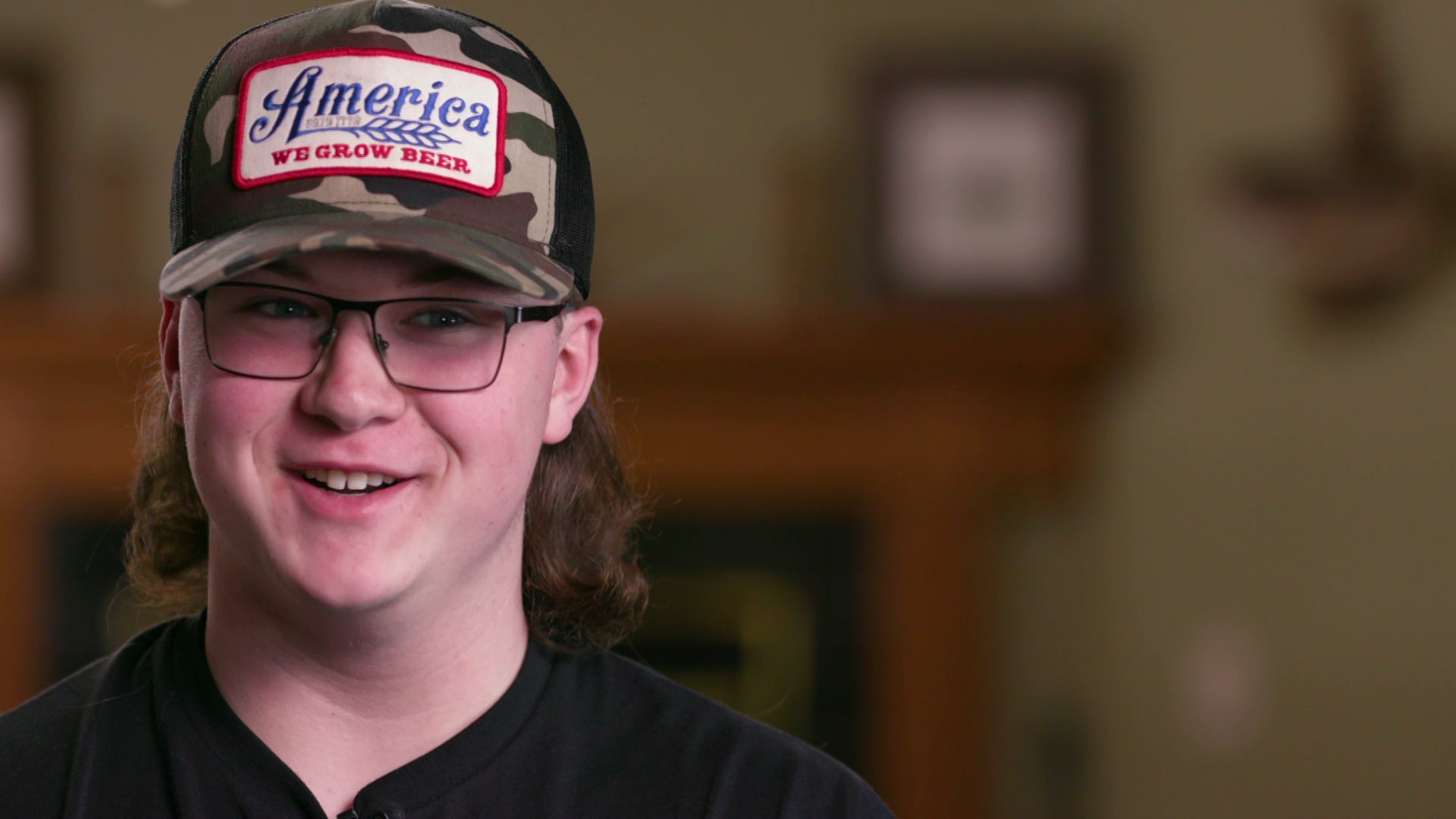
Jacob Ward (Credit: PBS Wisconsin)
Jacob grew up “country” and wouldn’t have it any other way.
“The air is different, like I get out of my truck at school in the air is just different. I mean, out here, it’s just nice and breezy – in town, you can smell stuff,” he said.
Jacob couldn’t imagine not being able to shoot trap off the back deck –or ride his snowmobile to school in winter.
“People in the city can’t really ride their snowmobile to school every day. When I have enough snow, I’m able to – I do,” he said.
Jacob has no problem making friends with kids from the city.
“I have a lot of friends that live in town. I mean, we all get along the same. We all kind of have same beliefs, that type of stuff,” he said.
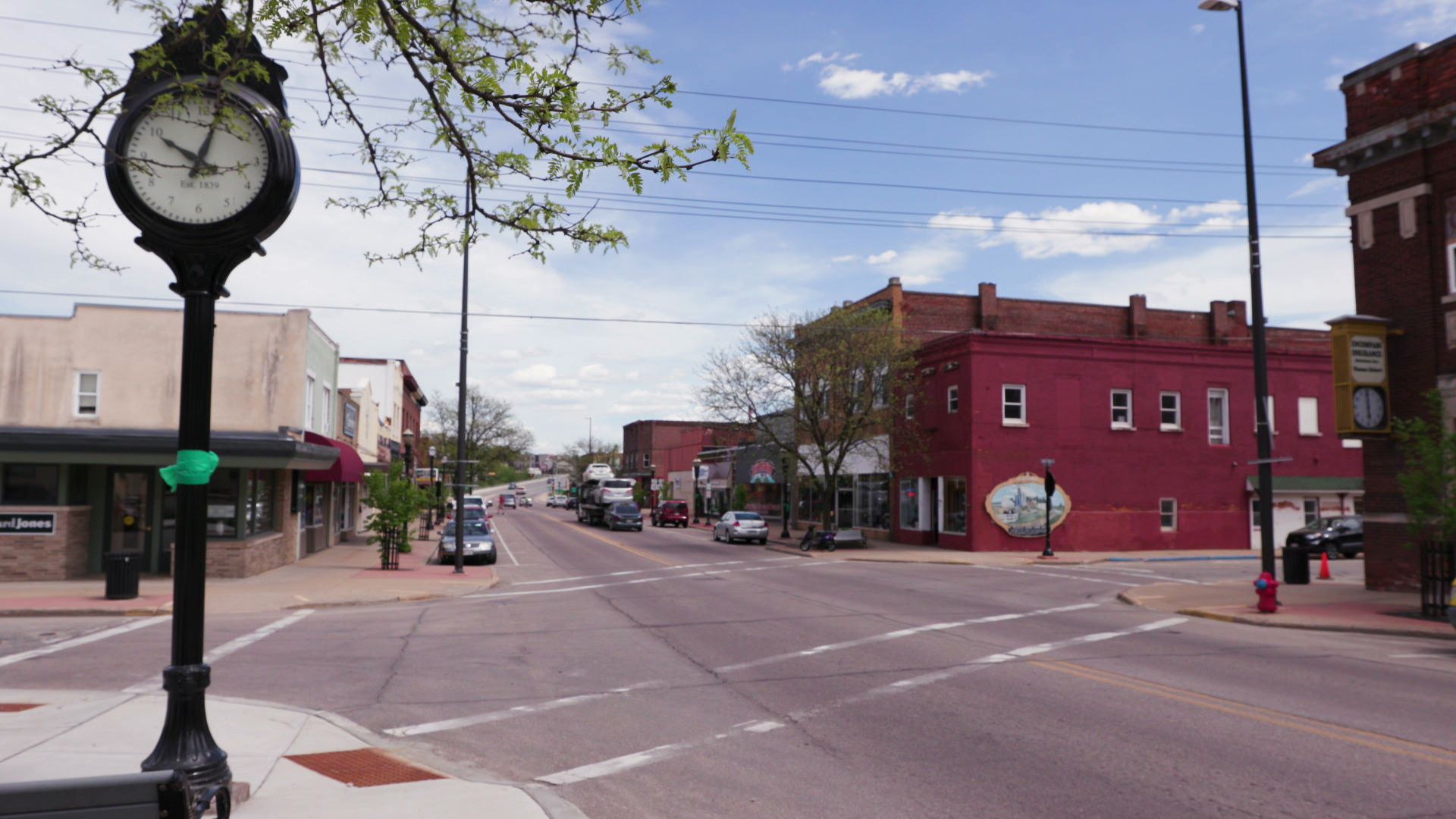
The Ho-Chunk Nation of Wisconsin has its administrative center in Black River Falls, and the tribal government is the largest employer in Jackson County. (Credit: PBS Wisconsin)
Jacob said white students and Ho-Chunk students get along fine.
“The Natives – there’s the good and the bad, obviously, just like everybody else. But they do a lot for the community,” he said.
He doesn’t mind visiting big cities like Minneapolis and Chicago – just don’t ask him to drive on their highways.
“Never again. Never again,” he said. “There are too many people, just too many things to worry about.”
“I have always liked the idea of a big city life,” said Lilli Wirtz.
She is the youngest of four kids, and her older sister has shown her what awaits after graduation.
“She has always sent me videos of her nice apartment, and she’s got a view of the skyline,” Lilli said. “I’m like, oh, that just seemed so nice!”
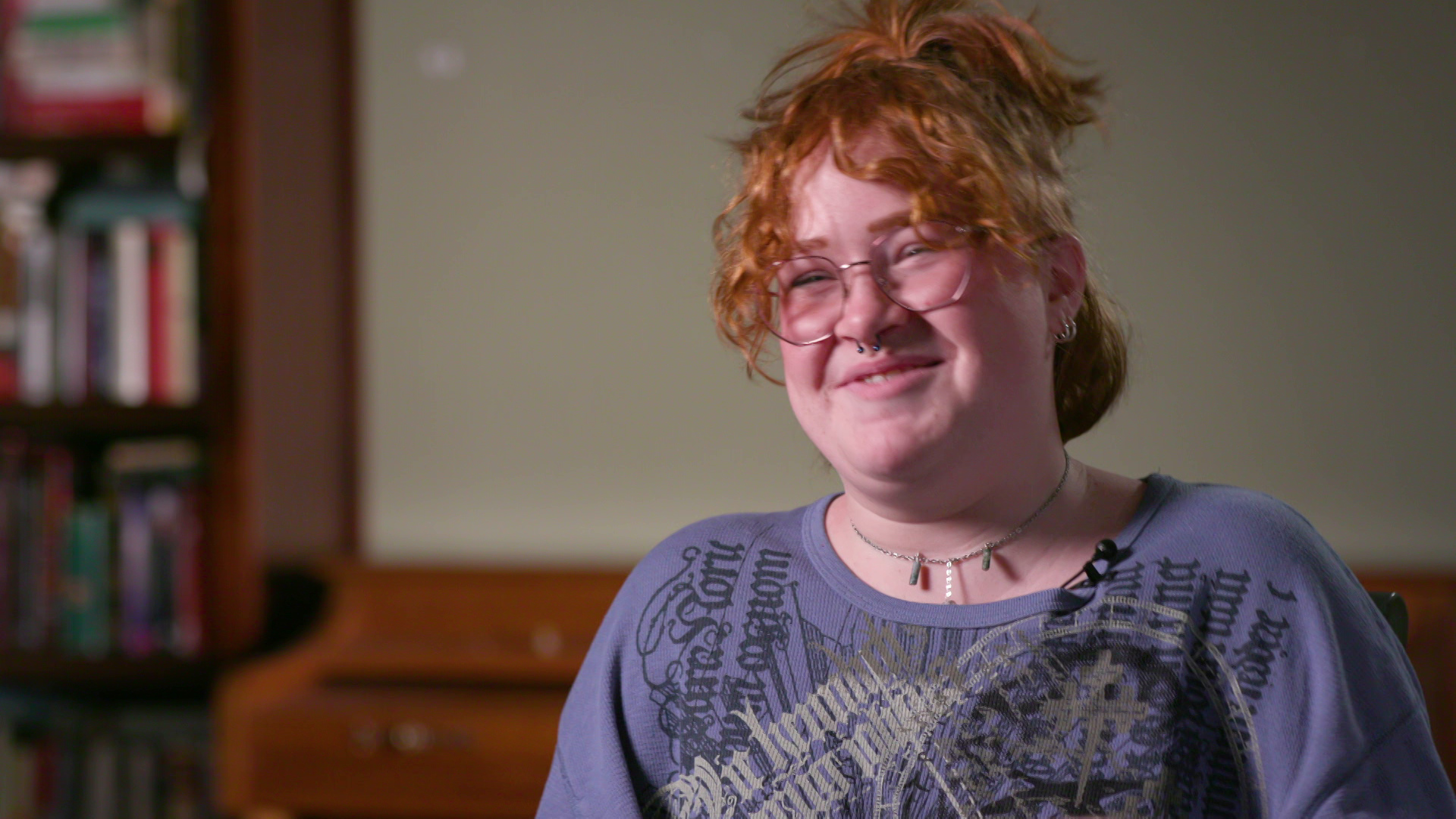
Lilli Wirtz (Credit: PBS Wisconsin)
In some ways, Lilli defines who she is by what she’s not. For example, she’s not “country.”
“The country kids, you know, like camo, like orange jackets, like, you know, all that stuff like hunting … the kids that lived in the country.”
But living in town doesn’t really make her a city kid.
“City, again – ‘city,’ I guess,” Lilli said.
Instead of getting a job at Kwik Trip or Wal-Mart, Lilli called the owner of a downtown coffee shop and asked if she could come in after school and bake.
“Usually I have like two-and-a-half hours just in the kitchen alone. I can put my music on, just do whatever I want,” she said. “Yeah, that’s probably the best part for me.”
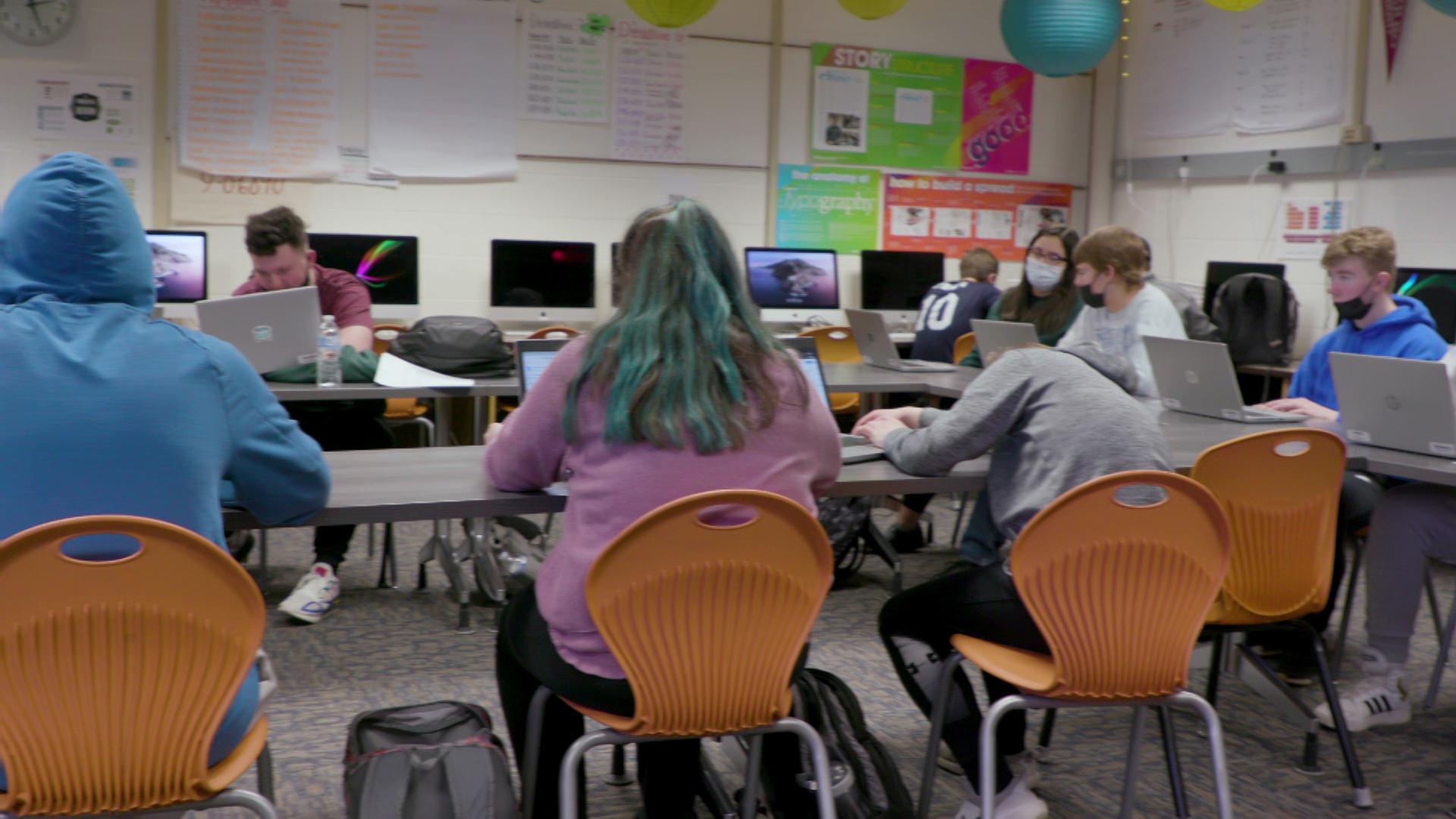
The School District of Black River Falls enrolls students from much of Jackson County, including the city of Black River Falls, the nearby community of Hixton and multiple surrounding townships. (Credit: PBS Wisconsin)
Creating your own path can be liberating in a small town, but an independent streak can lead to isolation.
“Someone go out already, I’m bored,” said Lilli while playing cards.
“It’s very difficult to come in as an outsider if you know that people just aren’t always going to be, like, welcoming,” she said.
But that doesn’t mean Lilli wishes she went to a bigger school.
“I never actually wish for more people. I just wish for different people, you know,” she said, “because the number of students was never the issue – it’s just that sometimes they didn’t mesh with people there.”
“I think Black River is definitely a closed-minded town, and if there’s someone different from you, it’s kind of hard for you to accept that,” said Reese Cowley.
Reese thought he was well liked and accepted in Black River Falls. Then he came out as gay.
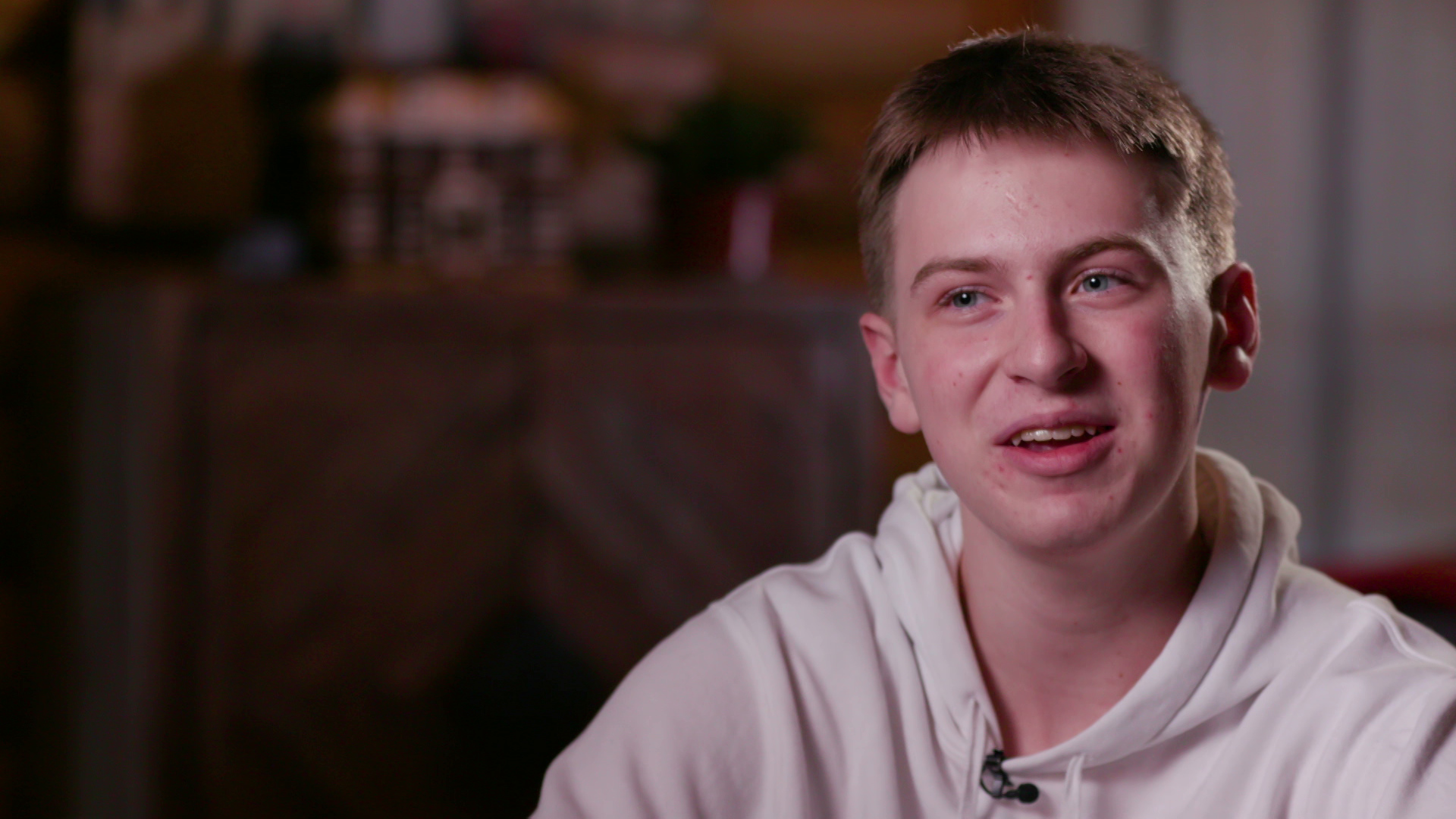
Reese Cowley (Credit: PBS Wisconsin)
“A lot of people also have been taught that that’s not OK since they were little. And then that’s when they’re like, ‘oh, well, this is what my family taught me, so I’m not going to be nice to them. I’m not going to accept them,'” he said.
Reese has been attacked, verbally and physically.
“Every time we go in the hallway, you get some sort of comment or just like people making fun of like me online,” he shared.
Reese knows if he lived in a larger city, he likely wouldn’t be the first openly gay male his classmates had met. He is, though, and so he’s showing everyone that he’s just like any other student: playing sports, joining clubs and just being a kid.
“I just kind of put myself out there, get involved a lot of different things just so that I’m not just, I mean, I still am looked at as the gay kid, but I try to make myself more than just that,” he said.
It worked.
“I got – gained – so much more confidence in, like I really just kind of stopped for a while, just acted like I didn’t care,” he said. “Then I realized I really just don’t care what other people think.”
Reese just finished his freshman year, so he has plenty of time to ponder his future. However, he already knows it won’t be in Black River Falls.
“I definitely want to live in a big city for the rest of my life,” Resse said. “I just think cities at nighttime – like I’m a night owl to think of [it] – they’re really pretty at night.”
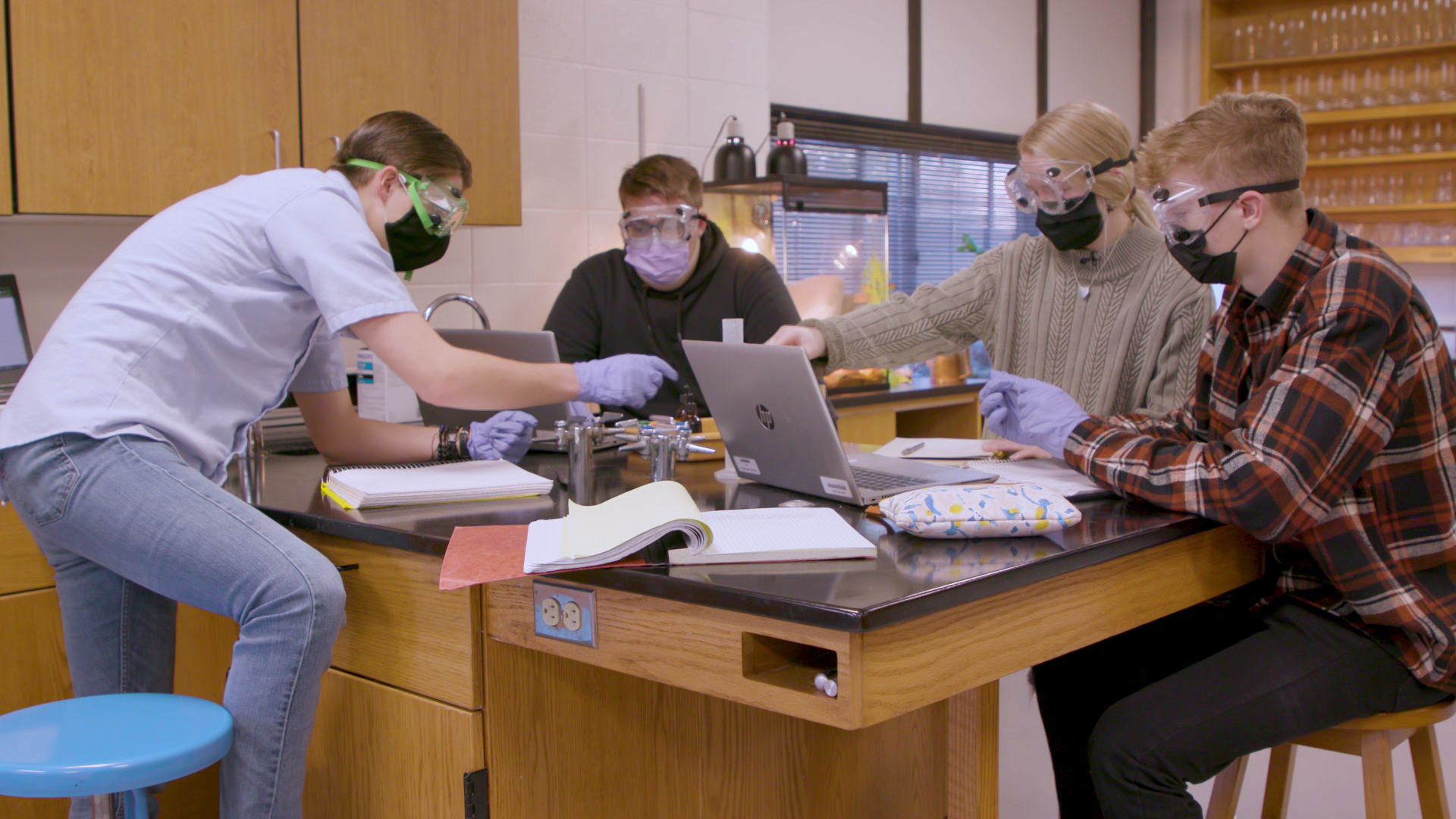
Students at Black River Falls High School work on a science assignment in class. (Credit: PBS Wisconsin)
Reese isn’t alone.
Paige Blackdeer will be heading to UW-Madison in the fall.
“I kind of just always knew that I wasn’t going to stay here. I just got my acceptance letter from Madison – going to go to Madison in the fall, and I don’t really plan on coming back,” Paige said. “Like, no hate to the town, but this is not where I want to be for the rest of my life.”
Lilli Wirtz wants to study science in college, and doesn’t see how that can lead her back to Black River Falls.
“I think that there is not a ton of opportunity here. We have like a tech college, but we don’t have, like, actual businesses that can hone on specific skills,” she said.
Even Jacob Ward is ready to explore a different part of the country.
“I can’t wait to get out of here, really. It gets a lot of fun and everything, but I kind of want to move on,” he said. “I’ve been in school for 12 years now, and I want to get on with life, get working type of things like that.”
Haylie Schmidt has had those conversations with classmates.
“There’s definitely a few kids where they’re like, ‘I’m bigger than this small town. I’m going to go out of here.’ And I’m like, you do that because I’m probably not,” she said.
But Haylie knows the city is not as welcoming as it may seem.
“There’s definitely kids that want that adventure, I would call it. And I honestly think it might be because they’ve never lived in a bigger city like I’ve lived there. I’ve done it. I’m over it, so I’m not going to do it again,” she said.
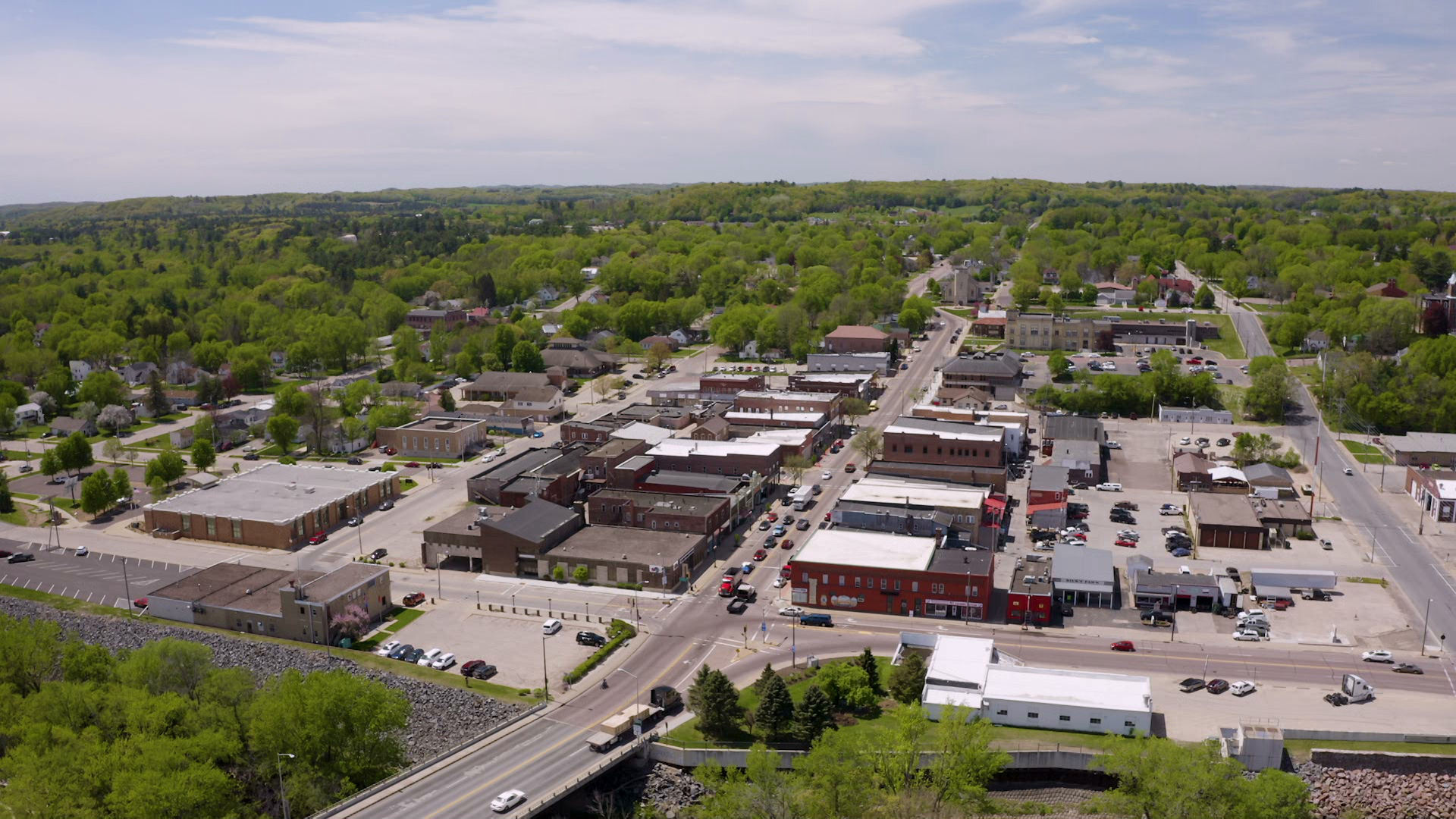
The population of Black River Falls declined by several percentage points in the 2010s, through the population of Jackson County grew slightly. Will young people remain in the community as they grow older? (Credit: PBS Wisconsin)
“If you want young people to be here, you’re clearly not doing what you need to,” said Lilli.
She said the locals want rural communities to grow and for everyone to feel welcome, they should listen to why the kids don’t come back.
“A lot of the the adults that live here have lived here a majority of their lives,” Lilli said. “And I think that’s telling because most of the kids coming out of here get away as fast as they can.
 Passport
Passport








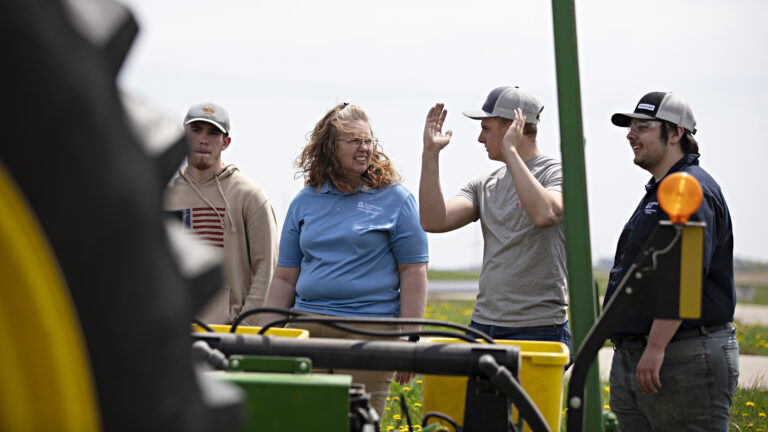


Follow Us